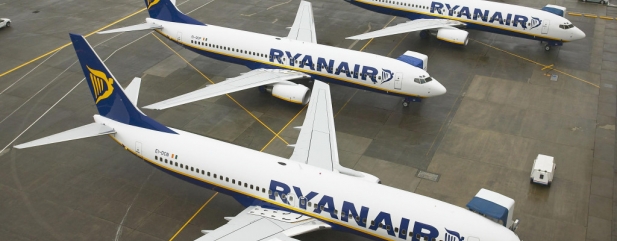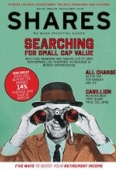Archived article
Please note that tax, investment, pension and ISA rules can change and the information and any views contained in this article may now be inaccurate.
Are investors focusing on the wrong catalyst for Ryanair’s future growth?

Future earnings growth at low-cost airline Ryanair (RYA) could be driven by higher ancillary sales, instead of aggressively slashing ticket prices to drive sales volumes, according to Deutsche Bank.
Traditionally, the market focuses on ticket prices and load factor, which is the percentage of available seats on scheduled flights occupied by passengers.
In the year to 31 March 2017, average fares fell 13% to €41 while load factor was up 2% to 96% in the year to June 2017.
Deutsche Bank analyst Anand Date believes that investors are fixating on the wrong factor at Ryanair, flagging that over 75% of group profitability is ancillary derived.
‘Ryanair is, in our view, still in the preliminary stages of generating a significant uplift in its ancillary profitability’, comments Date.
Sales in this division are generated from non-tickets sources, including baggage fees, on-board food, car hire and hotel bookings.
If Ryanair focuses on ancillary sales growth to help offset its low ticket prices, this could theoretically help to boost overall profitability.
However, news (19 Jul) that companies will no longer be able to add surcharges for UK card payments from January 2018 is negative for Ryanair’s ancillary revenue. Airlines are among the worst offenders with 2% to 3% typical fees for customers who pay for tickets with credit cards. The card fee clampdown is part of an EU rule change.
Deutsche Bank says ancillary sales could be supported by an increase in the number of passengers flying, a greater breadth of ancillary services and higher spend per customer.
Group net profit is expected to rise by 8% to a range of €1.4bn to €1.45bn in the financial year to 31 March 2018.
Ancillary revenue is becoming a bigger part of Ryanair’s business. The airline says it is currently on track to reach 30% of total sales from this source of income by March 2020.
Revenue generation from ancillary products has been strong in the past, reflected by a 13% sales jump to €1.8bn for this part of the business in the year to 31 March 2017. That represented 27% of group revenue.
Deutsche Bank is not the only one flagging ancillary services as a potential growth driver. Davy analyst Barry Dixon says ancillary revenue growth, improved economics from Boeing Max aircraft and cash flow generation over the next five years could help push Ryanair’s share price to €25 over the next year. It presently trades at €18.47.

Buy at €18.47.
Important information:
These articles are provided by Shares magazine which is published by AJ Bell Media, a part of AJ Bell. Shares is not written by AJ Bell.
Shares is provided for your general information and use and is not a personal recommendation to invest. It is not intended to be relied upon by you in making or not making any investment decisions. The investments referred to in these articles will not be suitable for all investors. If in doubt please seek appropriate independent financial advice.
Investors acting on the information in these articles do so at their own risk and AJ Bell Media and its staff do not accept liability for losses suffered by investors as a result of their investment decisions.
Issue contents
Big News
- Brexit puts squeeze on consumers and businesses
- Pressure on Blancco Technology
- Keep toasting cash-generative Conviviality
- Yu Group to beat forecasts
- Weir seeing North American shale recovery
- Carillion bailed out by HS2
- What will McCall do at ITV?
- Sage to sidestep HMRC’s digital delay
- EasyJet reveals post-Brexit plans as CEO departs

 magazine
magazine









